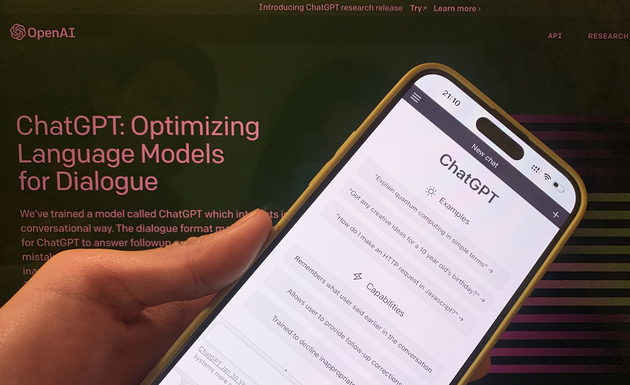
File Photo/Liu Xuemei (NBD)
NO.1 OpenAI releases Voice Engine speech model
On March 30, OpenAI unveiled its latest research result——“Voice Engine”. This technology can generate natural speech that is very similar to the original speaker through a short 15-second audio sample and text input. In the announcement, OpenAI gave some early application scenarios for Voice Engine, such as using natural, emotional voices to assist children in reading, translating videos and podcasts, improving community services in remote areas, and helping patients with sudden or degenerative speech disorders recover their voices.
Commentary: OpenAI's Voice Engine technology has the potential to provide personalized and emotional voice services in multiple domains.
NO.2 Microsoft and OpenAI plan to invest $100 billion to build an AI supercomputer
According to foreign media reports, Microsoft and OpenAI plan to invest $100 billion to build a "Stargate" AI supercomputer. OpenAI's next major artificial intelligence upgrade is expected to land early next year. Microsoft executives hope to release the "Stargate" AI supercomputer as early as 2028. In addition, Microsoft and OpenAI plan to develop data center projects for AI.
Commentary: The cooperation and investment between Microsoft and OpenAI demonstrate the huge potential of the artificial intelligence field and the long-term planning for future technologies.
NO.3 Apple reportedly exploring glass substrate chip packaging technology
According to Digitimes, citing supply chain sources, Apple is actively discussing with multiple suppliers the application of glass substrate technology to chip development.
Commentary: Apple's exploration of glass substrate technology may bring innovative breakthroughs to the chip industry and improve performance to a new level.
NO.4 U.S. House of Representatives bans staff from using Microsoft Copilot
According to reports, the U.S. House of Representatives has now banned congressional staff from using Microsoft's Copilot generative artificial intelligence assistant. According to Catherine Szpindor, the House's chief administrative officer, in a guide sent to congressional offices, "the Cybersecurity Office believes that the Microsoft Copilot application poses a risk because it has the potential to expose sensitive House data to cloud services not approved by the House."
Commentary: The U.S. House of Representatives' ban on the use of Microsoft Copilot reflects the concern and caution about the security of emerging technologies.
Disclaimer: The content and data in this article are for reference only and do not constitute investment advice. Please verify before using.


 川公网安备 51019002001991号
川公网安备 51019002001991号





